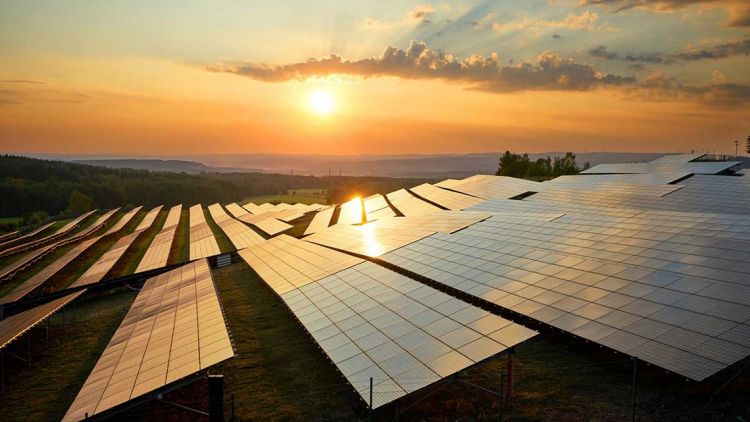
Renewable energy investment platform Nexwell Power has signed power purchase agreements (PPA) with an unnamed US tech giant for 145MW of solar PV capacity in Spain.
The company said it would supply its customer – “one of the largest tech companies in the US with data centres worldwide” – with roughly 2.9GWh of solar power from 2026 through 2040.
Try Premium for just $1
- Full premium access for the first month at only $1
- Converts to an annual rate after 30 days unless cancelled
- Cancel anytime during the trial period
Premium Benefits
- Expert industry analysis and interviews
- Digital access to PV Tech Power journal
- Exclusive event discounts
Or get the full Premium subscription right away
Or continue reading this article for free
Though it did not specify the projects in question, or how many sites would comprise the 145MW of agreed capacity, Nexwell Power said the assets were hybrid projects featuring “top efficiency PV technology and utility-scale batteries.” The deal reportedly includes the potential for expansion of up to 250MW of nameplate PV generation capacity to supply up to 1.9GWh of additional incremental power.
Nexwell Power – a subsidiary of decarbonisation investment platform Nexwell – claims to have 2.9GW of solar PV capacity under active development across Spain. It also has several small-to-medium scale projects in operation.
Nexwell’s focus on co-located solar PV and storage for these projects is reflective of a broader trend in global markets and particularly across Europe. A rise in negative power prices, particularly in countries like Spain with high penetration of solar PV on the grid, has made energy storage a key enabler for more bankable renewable power projects.
Big tech demand
Large US tech companies play a big role in the solar power procurement market, particularly on home soil; Amazon, Meta, and Google are all among the leading buyers of solar PV capacity in the US. The former has also made inroads into the Spanish market after it announced the signing of over 800MW of solar PV and wind PPAs in Spain earlier this month.
PV Tech heard that data centres themselves may only play a supporting role in the future of Europe’s electricity demand, despite the broad industry concern over the potential strain that big tech’s computing hubs will put on the world’s grids.
At the Solar Finance & Investment Europe conference last month, Jan-Phillip Kock, investment strategy manager at German asset manager Encavis, said that “only 4% of global AI computing capacity” is currently in Europe, largely because power is cheaper and investment support greater in other global regions.
That said, data centres may still become more popular in Europe, with a particular growth in grid-connected sites as their power demand increases, speakers at the event said.






